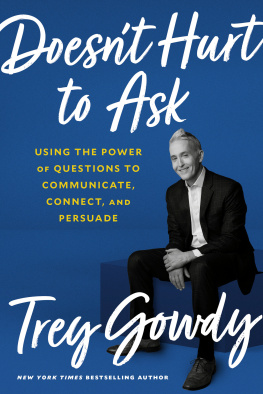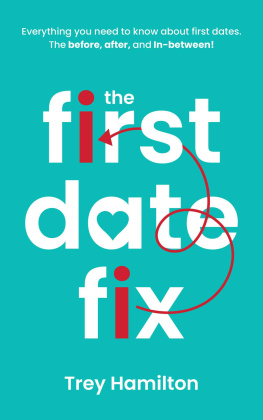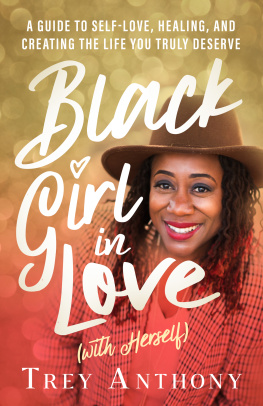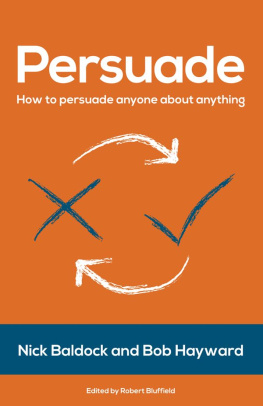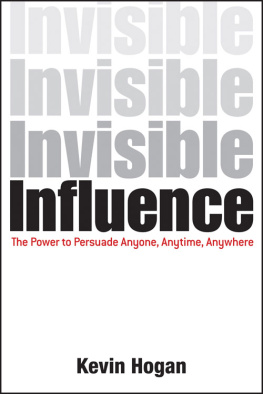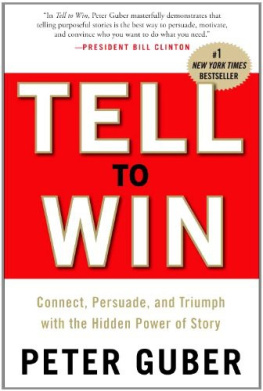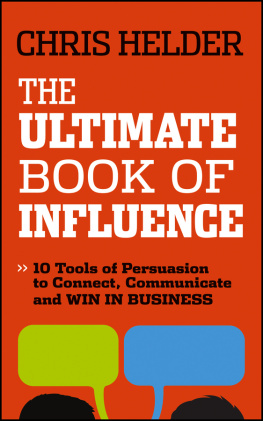Trey Gowdy - Doesnt Hurt to Ask: Using the Power of Questions to Communicate, Connect, and Persuade
Here you can read online Trey Gowdy - Doesnt Hurt to Ask: Using the Power of Questions to Communicate, Connect, and Persuade full text of the book (entire story) in english for free. Download pdf and epub, get meaning, cover and reviews about this ebook. year: 2020, publisher: The Crown Publishing Group, genre: Religion. Description of the work, (preface) as well as reviews are available. Best literature library LitArk.com created for fans of good reading and offers a wide selection of genres:
Romance novel
Science fiction
Adventure
Detective
Science
History
Home and family
Prose
Art
Politics
Computer
Non-fiction
Religion
Business
Children
Humor
Choose a favorite category and find really read worthwhile books. Enjoy immersion in the world of imagination, feel the emotions of the characters or learn something new for yourself, make an fascinating discovery.
- Book:Doesnt Hurt to Ask: Using the Power of Questions to Communicate, Connect, and Persuade
- Author:
- Publisher:The Crown Publishing Group
- Genre:
- Year:2020
- Rating:4 / 5
- Favourites:Add to favourites
- Your mark:
- 80
- 1
- 2
- 3
- 4
- 5
Doesnt Hurt to Ask: Using the Power of Questions to Communicate, Connect, and Persuade: summary, description and annotation
We offer to read an annotation, description, summary or preface (depends on what the author of the book "Doesnt Hurt to Ask: Using the Power of Questions to Communicate, Connect, and Persuade" wrote himself). If you haven't found the necessary information about the book — write in the comments, we will try to find it.
Trey Gowdy: author's other books
Who wrote Doesnt Hurt to Ask: Using the Power of Questions to Communicate, Connect, and Persuade? Find out the surname, the name of the author of the book and a list of all author's works by series.
Doesnt Hurt to Ask: Using the Power of Questions to Communicate, Connect, and Persuade — read online for free the complete book (whole text) full work
Below is the text of the book, divided by pages. System saving the place of the last page read, allows you to conveniently read the book "Doesnt Hurt to Ask: Using the Power of Questions to Communicate, Connect, and Persuade" online for free, without having to search again every time where you left off. Put a bookmark, and you can go to the page where you finished reading at any time.
Font size:
Interval:
Bookmark:
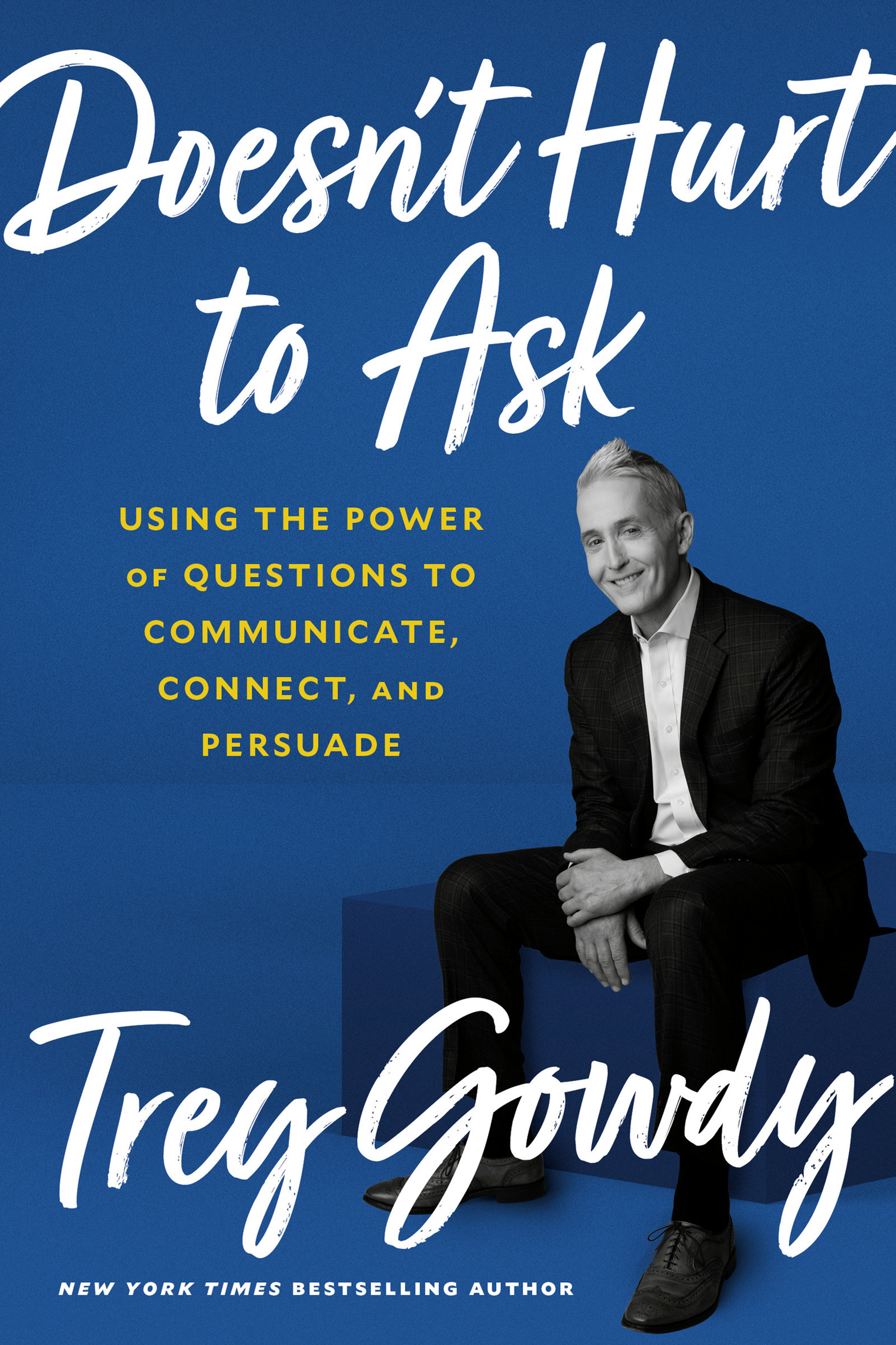
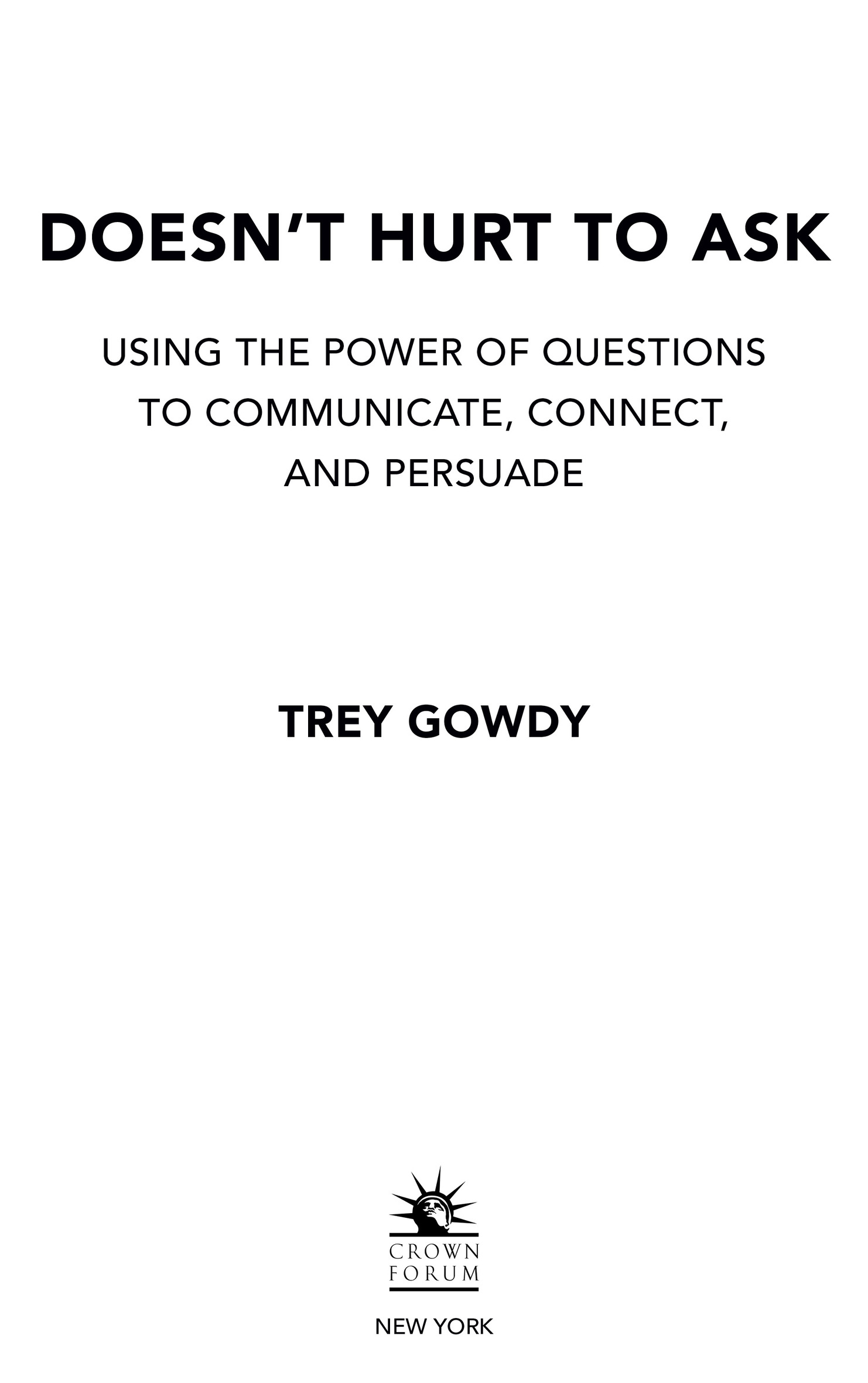
This is a work of nonfiction. Some names and identifying details have been changed.
Copyright 2020 by Trey Gowdy
All rights reserved.
Published in the United States by Crown Forum, an imprint of Random House, a division of Penguin Random House LLC, New York.
C ROWN F ORUM with colophon is a registered trademark of Penguin Random House LLC.
LIBRARY OF CONGRESS CATALOGING-IN-PUBLICATION DATA
Names: Gowdy, Trey, author.
Title: Doesnt hurt to ask / Trey Gowdy.
Description: First edition. | New York: Crown Forum, [2020]
Identifiers: LCCN 2020007613 (print) | LCCN 2020007614 (ebook) | ISBN 9780593138915 (Hardback) | ISBN 9780593138922 (Ebook)
Subjects: LCSH: Persuasion (Psychology) | Interpersonal communication.
Classification: LCC BF637.P4 G68 2020 (print) | LCC BF637.P4 (ebook) | DDC 153.8/52dc23
LC record available at https://lccn.loc.gov/2020007613
LC ebook record available at https://lccn.loc.gov/2020007614
Ebook ISBN9780593138922
crownforum.com
Cover photograph: Deborah Feingold
ep_prh_5.5.0_c0_r0
For sixteen years, I stood in front of countless groups of twelve people who were unsuccessful in getting out of jury duty. (Okay, maybe that isnt fair. But admit it! You are hardly enthused when you get a summons in the mail.) However, in my experience, despite their hesitation most people wind up either enjoying their jury service or, at a minimum, appreciating the majesty of our justice system. The courthouse reflects real life, with all the pain and joy, the justice and injustice, and the raw emotions that come from trying to harness and adjudicate human nature. Your life most likely doesnt involve a courthouse, but the trials are just as real. Those trials could be in business settings, community meetings, schools, or at home.
After nearly a hundred jury trials in both federal and state courtranging in cases from firearms violations to narcotics trafficking, kidnappings to carjackings, sexual assault to robbery, child abuse to murderthe courtroom has become the single most peaceful and comfortable place for me. I love the logic. I love the rules. I love the strategy. I love the need for quick thinking. I love the opportunity to seek truth. I love the entire human spectrum epitomized by people and procedures. But mostly, I love the courtroom because I love the art of persuasion, and Ive dedicated myself to being as good at it as I possibly can be.
I owe that to my mother. She did a lot of things workwise while I was growing up with my three sisters, but the job she enjoyed the most was being a victim advocate for the local solicitors office. Victim advocates advise the victims of crimes and their families on what their rights are as victims and demystify the criminal process. If needed or requested, victim advocates sit with the victim and their families through trials, pleas, and sentencing hearings.
When I was home during the summers in college and law school, my mom would come in after work frustrated about our criminal justice system. She would openly wonder, Why does a defendant, someone charged with a crime, get to hire any lawyer he or she wants, but the victim cannot? The victim is stuck with the prosecutor assigned to the case. Why cant a victim go hire the best lawyer too?
Thats a good question, Mom. I know the textbook answerthe crime is really against the state, not against an individualbut textbook answers are of no solace to a victim being cross-examined by a skilled criminal defense attorney, while the perpetrator may or may not be cross-examined by a skilled prosecutor. You were right, Mom. Victims are entitled to a good lawyer. Victims are entitled to a lawyer who can set the stage with the right expectations in an opening statement. Victims are entitled to a lawyer who can connect with a jury both verbally and nonverbally. Victims are entitled to a lawyer who can use direct questions to skillfully elicit the testimony in a compelling, logical way. They are entitled to a lawyer who can cross-examine defendants effectively without looking down at their notes. They are entitled to a lawyer who can marry passion with reason in a closing argument and move a jury to consensus, even overcoming the highest evidentiary burden our culture recognizes, which is beyond a reasonable doubt. They are entitled to a lawyer who can anticipate what the defense attorney is going to do before they do it and have a plan to combat it. They are entitled to someone who knows the ins and outs of persuasion.
Even outside of a courtroom setting, people want to be both effectively advocated for and effective advocates themselves. If there is a conversation at work about a promotion or a new line of business, you will want to be part of that conversation, and being part of that conversation may very well be in direct proportion to your effectiveness as a communicator. In fact, you want to be considered an indispensable part of that conversation.
That is what I strove to be for those sixteen years in the courtrooman advocate the victim would have picked if he or she could do what my mom wanted them to be able to do: pick any lawyer in the country to be their lawyer. The weight of being an effective advocate for a victim or a victims family was heavy. But that weight is no lighter in other realms of your own life. You too will need to successfully advocate about something or someone. You will need to persuade others to either come closer to your way of thinking on an issue or at least see why it is you believe what you believe. The courtroom was my job site but you have your own job site, and the need to competently process and communicate information toward a desired outcome is every bit as essential on your job site as it was on mine. The skill set needed is the same whether the issue is murder, marketing, or motherhood.
I sometimes refer to receiving line jobs. Those are the jobs you want people to remember you for when you are gone. Ive asked my wife to do two things if I die before she does: (1) wait until after my funeral to start dating, and (2) make sure our children remember that their father loved being a prosecutor more than any other job. Its the job I want to be remembered for, because it was the job with the most meaning, the highest sense of purpose, and the most challenging objective: to persuade within the rules of fairness and due process and to move the jury from not guilty to guilty using credibility, facts, reasoning, passion, logic, and an entire mosaic of words.
You will have your own version of how this conversation will go as it relates to your own lifebut it is never too soon to think about how you want to impact the world in which you live, work, and love.
There is one more thing I hope my wife remembers:
(3) Make sure those friends and family closest to us remember the last case I prosecuted and why I did it.
If you ever visited my office in Washington, DC, and wondered who the little girl was in the picture beside my familys picture, she was the last victim in the last criminal case I will ever try. She was the reason I stood in front of a jury one final time.
Meah Weidner was a beautiful ten-year-old girl born with cerebral palsy. She was beaten and shaken to death by her mothers boyfriend. The boyfriend was a firefighter and an EMT with no criminal record. He said her injuries were caused when she fell out of her wheelchair while having a seizure, and he claimed that he may have accidentally hurt her attempting CPR to save her life. But it was an accident, he contended, not a crime.
Font size:
Interval:
Bookmark:
Similar books «Doesnt Hurt to Ask: Using the Power of Questions to Communicate, Connect, and Persuade»
Look at similar books to Doesnt Hurt to Ask: Using the Power of Questions to Communicate, Connect, and Persuade. We have selected literature similar in name and meaning in the hope of providing readers with more options to find new, interesting, not yet read works.
Discussion, reviews of the book Doesnt Hurt to Ask: Using the Power of Questions to Communicate, Connect, and Persuade and just readers' own opinions. Leave your comments, write what you think about the work, its meaning or the main characters. Specify what exactly you liked and what you didn't like, and why you think so.

